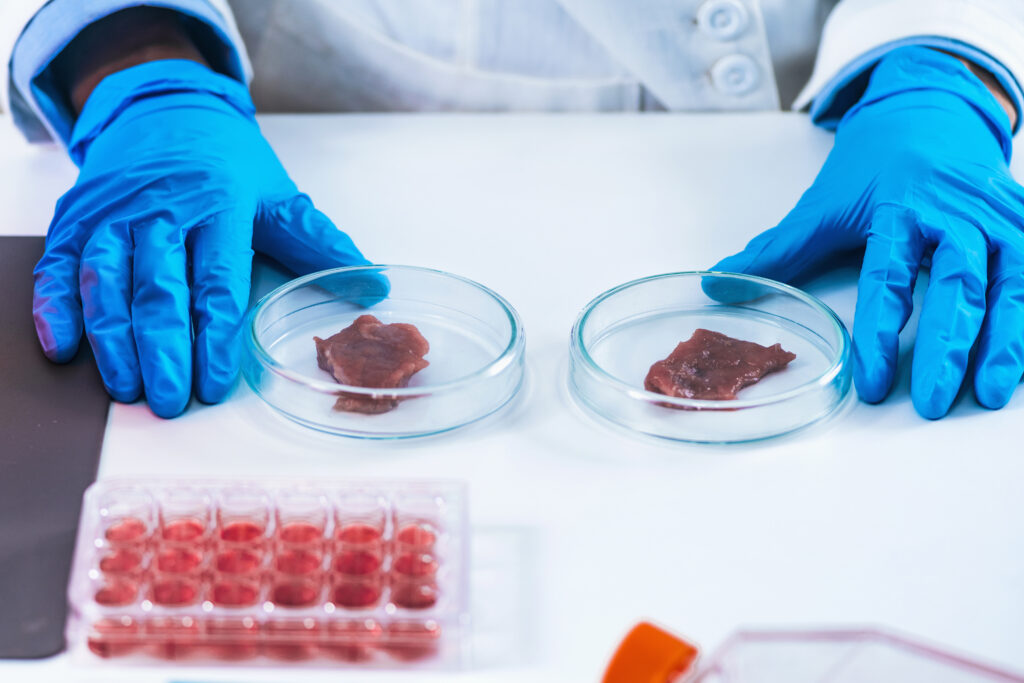Just as the US government was getting more comfortable with the concept of lab-grown meat, Italy’s government approved a draft law of a lab-grown meat ban. The bill would prohibit the use of laboratory-produced food and animal feed as it aims to protect the country’s food heritage.
Under the ban, which needs to be passed in both houses of parliament before becoming law, those who produce, export or import lab-grown food would face fines of up to €60,000 ($65,017) and risk having their manufacturing plants closed.
Calling for the protection of “natural food vs synthetic food,” lobbyists have collected half a million signatures in recent months, including that of Prime Minister Giorgia Meloni. The push for a lab-grown meat ban comes just days after her government issued a ban on the use of insect-derived flour in pizza and pasta.
Related: Steakholder Foods is 3D Bioprinting Steak, Among Other Meats
The production of lab-grown food, which activists argue avoids the need for animals to be killed and is a more sustainable alternative to natural food, has not yet taken off in Europe, and it is expected to be years before such products appear on supermarket shelves. The potential lab-grown meat ban is thus a pre-emptive move to safeguard Italy’s heritage and agriculture based on the Mediterranean diet.
In a response to the proposed lab-grown meat ban, Cellular Agriculture Europe, a coalition of food companies that produce lab-grown meat, poultry, seafood and ingredients, called it “bad public policy.” The group added that the ban could be, “damaging the economic opportunity for Italy and the EU to be at the forefront of this innovation.”
Cellular Agriculture Europe wasn’t the only group to oppose the lab-grown meat ban. Alice Ravenscroft, head of policy at the Good Food Institute Europe, which represents the alternative protein industry, told BBC, “This development puts Italy at odds with the rest of Europe, where other governments are eager to unlock the benefits of cultivated meat.”
Currently, Singapore is the only country to have allowed the sale of lab-grown chicken, while two companies in the US, Upside Foods and Good Meat, have been granted regulatory clearance by the FDA to produce lab-grown chicken. Meanwhile, several European countries including the UK, the Netherlands and Spain have announced investments in the research and development of cell-based foods.
However, no approval has been authorized within the EU as of yet, but the European Food Safety Authority (EFSA) has said that cell-based agriculture and seafood, “could be considered as a promising and innovative solution to help achieving the objectives of the farm to fork strategy for fair, safe, healthy and environmentally-friendly food systems.”
Still, Italy would not be able to oppose the sale of synthetic meat produced within the EU if it is granted approval, due to the free movement of goods and services.
“Italy is essentially a complete outlier here,” Ravenscroft told The Guardian. “What we’re seeing across the rest of Europe is that other governments are eager to unlock some of the benefits of cultivated meat and are therefore being supportive.”












Join or login to leave a comment
JOIN LOGIN